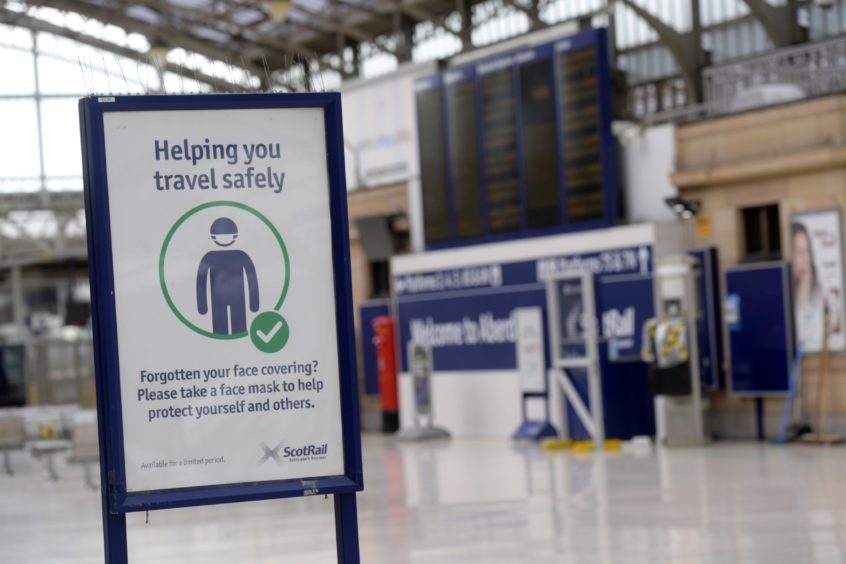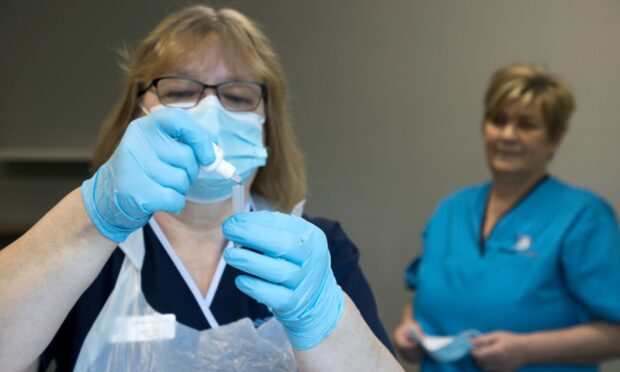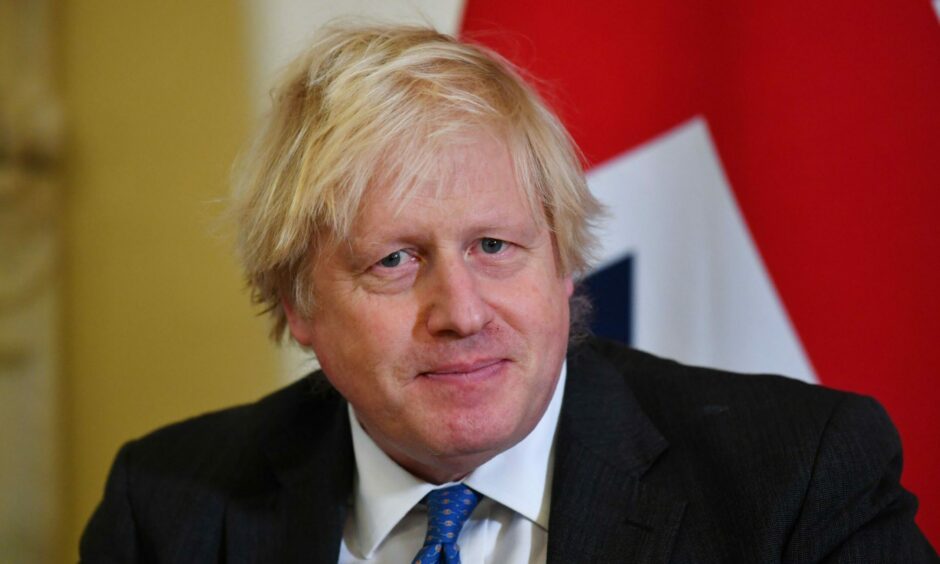Mandatory face coverings in indoor public places, track and trace, and Covid passports will all end in Scotland, it has been confirmed.
Speaking in the Scottish Parliament on Tuesday, Nicola Sturgeon announced major changes to the country’s handling of the pandemic in a new “strategic framework”.
Addressing MSPs, she said the government will no longer rely on legally-imposed measures but instead put faith in vaccines, treatments, and public health guidance.
Face masks no longer legal requirement
It means the wearing of face masks will become guidance on public transport and in indoor settings, such as shops and places of worship, as of Monday March 21.
The requirement of businesses such as pubs and restaurants to record details through track and trace will also end on March 21.
Meanwhile, the much-maligned Covid passport scheme requiring Scots to prove vaccination status before entering certain venues will be axed as of Monday February 28.
Ms Sturgeon, however, said Scottish residents will be required to continue to self-isolate if they have or suspect they have Covid.
It means payments for self-isolation support will continue for the time-being.
She said: “Covid is unfortunately still with us and we must therefore remain vigilant and prepared for the threat it poses.
“This new framework is an important moment in our recovery. It marks the point in which we move away, hopefully sustainably, from legal restrictions and rely instead on sensible behaviours, adaptations, and mitigations.”
What are the major changes?
- Face masks to become guidance as of March 21
- Track and trace to end on March 21
- Covid passport axed as of Monday February 28
Testing to continue
The country will now follow the new framework during any future spike in Covid cases caused by new variants, through low, medium, and high threat levels.
PCRs and lateral flow tests will remain free in Scotland and Sturgeon criticised the UK Government for ending funding for these schemes across the country.
Ms Sturgeon added: “The return to normality must go hand-in-hand with a continuing determination to look after each other.
“All of us have a part to play in ensuring safe and a sustainable recovery.
“I would urge everyone to follow advice on getting vaccinated, testing as regularly as appropriate, wearing face coverings when required or recommended, keeping rooms ventilated, and following hygiene advice.”
“Testing has been and will continue to be a vital part of our management of Covid.
“It is reasonable, over time and barring adverse developments, to move away from mass population-wide asymptomatic testing towards a more targeted system.”
She said this system would involve surveillance, rapid detection and response to new variants, outbreak management in high risk areas such as hospitals and care homes, as well as ensuring access to treatment.
Ms Sturgeon warned that if a new variant appears to be more transmissible and more severe, the threat level would likely be deemed high.
This could mean people are again advised to limit social contact and work from home while safety measures could be introduced in high-risk settings.
Covid cases falling
The number of Covid-19 cases has been falling in Scotland since early January with 6,427 new cases reported on February 22.
There are also just 12 people in ICU with Covid-19 in Scotland, down from a peak of 208 in April 2020.
Covid rules end in England
It comes after Prime Minister Boris Johnson announced all legal restrictions in England brought in due to Covid-19 are to end.
Mr Johnson cited high vaccination levels and low deaths as the key reasons for the move.
The rules will change on Thursday, with the ending of the legal requirement to self-isolate one of the major aspects to affect the population.
People will instead be advised to stay at home if they have tested positive for Covid-19, or believe they may have the virus.


